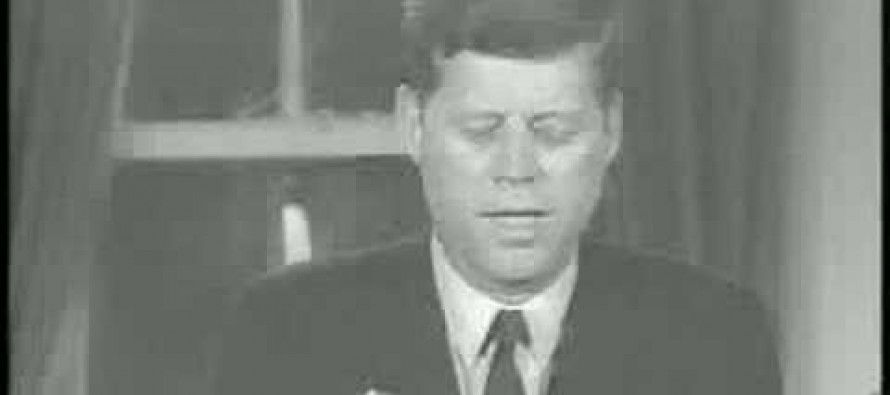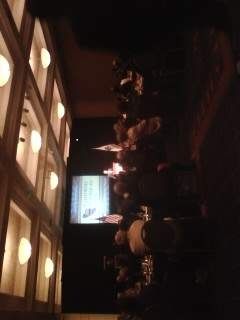I report from the Calif. GOP convention in Burbank

By John Seiler
BEAUTIFUL DOWNTOWN BURBANK — My drive up from Huntington Beach to Burbank to attend the California Republican Convention displayed much of what is wrong with the state. A 51-mile trip took two hours.
Beach Boulevard, HB’s main thoroughfare, is crumbling, even though median home values are around $500,000. Either the lights aren’t coordinated, as they ought to be, or the coordination doesn’t work. So it was stop-and-go traffic on Saturday morning.
The 405 freeway was clogged, but the traffic flowed at about 40 mph. The road was mildly crumbling. North on the 605 was a breeze. Then I took the 5 “freeway,” and it was bumper-to-bumper until a few miles from Burbank. The 5, the main freeway running North to South in California, is falling apart. In some places, it’s only two lanes.
The Burbank Marriott is only a few miles from the freeway. The drive was easy across decaying roads.
The whole trip reminded me of visiting Tijuana back around 1990, the last time I was there. California has become a Third World country, regardless of Gov. Jerry Brown’s claims that it’s “silly” to compare us to Greece, which used to be a First World country but also has collapsed into Third World status due to excessive power by government-worker unions, wild government spending and ruinous debt.
Despite the rough roads, traffic snarls and shredding 104-degree humid weather, the trip was comfortable inside my air-conditioned 2010 Camry, which is designed in Japan and built in Kentucky. Toyota used to make cars here, most recently the Matrix, but pulled out in 2010 due to the state’s anti-business climate.
The roads are crumbling because, back in the 1970s during his first stint as governor, Brown proclaimed that as an “era of limits.” It wasn’t. California boomed as it always had. But he sharply cut back on road construction for a population he thought never would be here.
Today we really do live in an “era of limits.” Yet Brown still can’t get it right, attacking as “declinists” those who criticize his empire-building boondoggles, such as the high-speed choo-choo and the tunnel under the Delta. Meanwhile, the state keeps falling apart.
Republicans dismayed
Twenty years ago, Republican state conventions were tumultuous, sometimes involving shoving matches and expulsions. Conservatives had a lot of beefs with “moderates” like then-Gov. Pete Wilson, especially on such “social issues” as abortion.
Those wars seem to be over with, perhaps because the party’s last two nominees for governor, Arnold Schwarzenegger and Meg Whitman, were pro-abortion. That battle is long over with. But also gone, perhaps, is the passion that makes parties live.
At the convention, Republicans generally were dismayed at the condition of their party in California, where they have had a lot of problems. The pall of the Schwarzenegger disaster still hangs over the party. I talked with numerous convention delegates. There’s a split within the party between the party bigshots who want to keep courting rich candidates, such as Meg Whitman and Schwarzenegger; and the party regulars who either are Tea Party members, or look to grassroots organizing as the way to bring the GOP back into competition statewide.
History is on the side of the grassroots. In America, political movements begin from the bottom up, not the other way. The Goldwater Movement in the 1960s was led by grassroots Republicans and conservatives across the country. It nominated Barry Goldwater for president in 1964. Even though he lost, the Goldwater Movement kept growing, and became the Reagan Movement of the 1970s and 1980s.
In 1980, the party bigshots favored the patrician George H.W. Bush for president. The Republican grassroots favored Reagan, who won and remains the touchstone for the party. I heard his name mentioned often at the convention. But contrast, both Bushes, George H.W. and his son, George W., were non-persons. I never heard their names mentioned, even though just four years ago W. still was president.
GOP enthused about Paul Ryan
The bright note for the GOPers was Paul Ryan, who earlier that Saturday morning had been named Mitt Romney’s vice-presidential running mate. People liked his enthusiasm, and his insistence on budget cuts.
Actually, Ryan’s plan doesn’t go near far enough. But at least Republicans are talking about making cuts, and about the immense burden the $16 trillion debt imposes on the country. Democrats hardly talk about this at all. And when they do, it’s in the context of raising taxes on “the rich” — that is, those making more than $250,000 a year, which in expensive, high-tax California makes you well off, but not “rich.”
And President John F. Kennedy 50 years ago seems to be the last Democrat who understood that the way to “get the economy moving again,” as he put it, is to cut taxes, not raise them. Here’s JFK:
It took another year, until 1964, to pass the tax cuts under President Johnson. But when it was enacted, it boomed the economy throughout the 1960s. Unfortunately, Johnson then started spending wildly on his Great Society giveaway programs and the Vietnam War, far exceeding even the massive extra revenues from the growing economy, and the country quickly went bankrupt.
Anyway, Republicans at least have a little understanding on what’s going on.
The delegates at the convention also were handily against Proposition 30, Gov. Jerry Brown’s $8.5 billion tax increase to fund his high-speed choo-choo and the gigantic pensions for retired government workers.
John Fund on strategy
John Fund, a FoxNews commentator and senior editor at The American Spectator, talked about California Republican strategy. In the picture above, he’s speaking at the party’s evening dinner.
A California native, he said two things are imperative to get the party rolling again. First, pass Proposition 32, which would prevent unions from automatically deducting dues for political agitation from worker paychecks. If it passes, it would loosen the unions’ death-grip on the state.
Second, he said, in the future a Voter ID initiative should be passed to prevent voter fraud. Such laws are controversial around the country, sparking charges of racism against minorities. But Fund pointed out that polls show Voter ID is supported by all groups, including minorities. Almost everybody wants honest elections. Only politicians who benefit from crooked elections don’t want people checked to make sure, on election day, they are who they say they are.
Fund just published a new book, “Who’s Counting? How Fraudsters and Bureaucrats Put Your Vote at Risk.” It details instances of massive voter fraud around the country.
By coincidence, I just finished the recent fourth volume of Robert Caro’s magisterial biography of Lyndon Johnson, “The Passage of Power: The Years of Lyndon Johnson.” It details the voter fraud LBJ used to get elected in Texas. And it has the goods on how he rigged the 1960 presidential election vote count in Texas so the Kennedy-Johnson ticket won. Caro also writes how the Kennedy machine and the Daley machine in Chicago rigged Illinois for JFK-LBJ. So the evidence is in: Republican Richard Nixon, a Californian, actually won the 1960 election.
And Caro describes the Kennedy-Johnson tax cut and the politics behind it. It’s worth reading in the context of today’s debate, almost 50 years later. Caro himself is a liberal Democrat.
CA GOP 2014
The fall convention before a general election usually is not well attended. I counted only about 160 at the Saturday evening dinner. Many Republicans are looking instead to the national convention at the end of the month.
Although dismayed and their number frayed, California Republicans could have a place in state politics for one reason: the state still is falling apart. If they’re smart, they’ll position themselves as the party that is ready to pick up the pieces when the state budget effectively goes bankrupt.
Instead of nominating a Schwarzenegger or a Whitman, rich people with no experience in elective office, they need to nominate more “nuts and bolts” candidates at the state level. Again, I don’t think Paul Ryan wants to cut near enough to make a difference with the federal budget. But at least he’s familiar with the problem, and the numbers.
At the state level, the party needs to look to guys like Tom McClintock, the former state legislator now exiled to the U.S. House of Representatives as a congressman; or Assemblyman Chris Norby, R-Fullerton, a former history teacher who also understands budgets.
As with George Deukmejian in 1992, running for governor after Jerry Brown’s first bout of wrecking the state, a party that’s ready could win office.
Related Articles
Ranked Choice Vote Favors Asian SF Mayor
JULY 18, 2011 By DAVE ROBERTS There are currently nine top-tier candidates for mayor of San Francisco. But the candidates
Will Prop. 14 kill third parties?
Feb. 19, 2010 By JOHN SEILER Californians keep tinkering with the state’s elections system. That’s understandable given the low esteem
Prop 24: Fairness or Penalty?
SEPT. 30, 2010 By KATY GRIMES It’s not so unusual to hear people making disparaging comments about one another at



